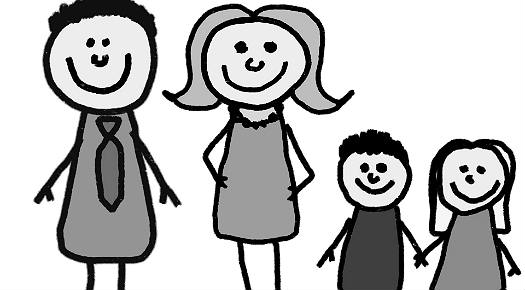
There is a popular opinion among religious people that people need religion in order to be moral and behave accordingly, and that is why lots of religious families think that their children also need religion as they grow up. Non-religious families are trying to change this and prepare their children to navigate life without faith.
Parent’s role is a complicated one because children at certain ages ask a lot of difficult questions and a parent should answer those. When parents talk to their children many different topics may come up, and parents need to figure out how to have a quality conversation with their kids. Who we are, why are we here, how we came here and other questions, about life and death for example, are some of the questions children ask.
Religious parents use religion to answer those questions and many answers can be found in a holy book, but those answers may have negative influence on children who trust everything when they are young and are easily indoctrinated. In addition to parents, grandparents and other family members also have influence on children when they spend time together.
If parents are non-religious and grandparents happen to be religious, there could be a problem between them. Although grandparents also want the best for their grandchildren, it is possible that non-religious parents do not want their children to listen to Bible stories. This could be a common situation because, according to research, the number of younger people who don’t affiliate with any religion at all is rising, especially those under 30 – which covers a lot of people who are becoming parents.
Non-religious parents are trying to answer their children’s big questions in a different way and help their kids find their own voice in the conversation. According to NPR.org, for some unaffiliated parents, raising children outside of a definitive religious construct can be very valuable, by empowering them in not knowing. "They don't spend all day wondering why zebras have stripes. We just look it up on the phone. And boom — wonder, done!" says Emily Freeman, who grew up unaffiliated to a religion. "So I love this idea of giving them open-ended, unanswerable questions. And saying, who knows? And people you love can believe different things than you do, and that's OK." And Freeman says helping her kids find their way through the wonder of it all — even when it's uncomfortable — is part of the job of parenting.
Parents do not need religion to teach their children ethics and morality; they can do that by behaving morally and such giving their kids quality examples.
Photo Credits: Public Domain Pictures
